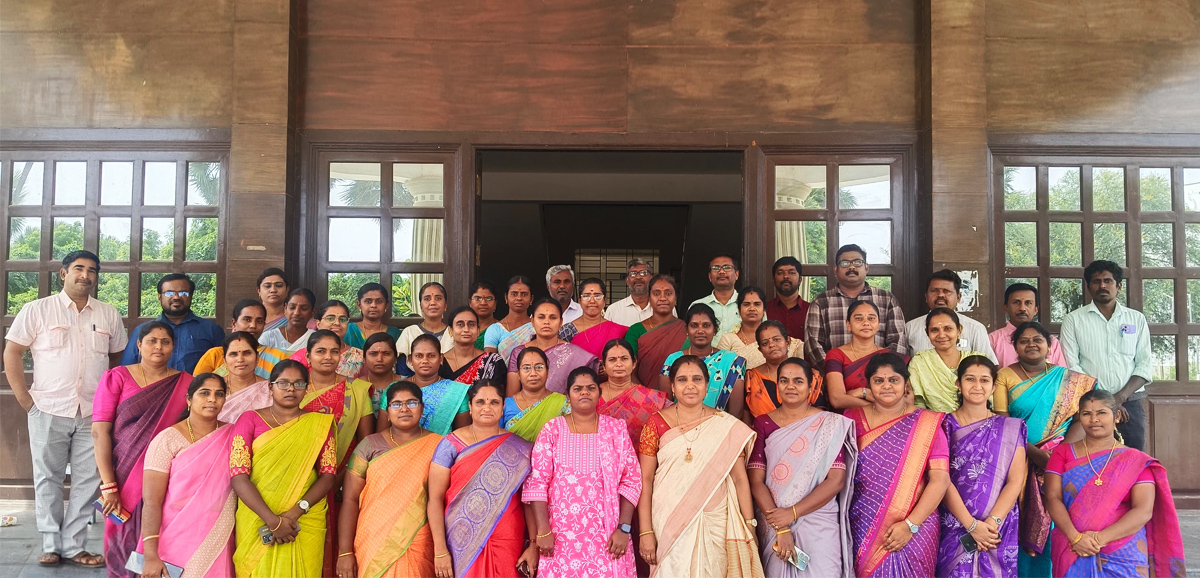The Faculty Development Program (FDP) is a key component of the Skills4Future initiative, a partnership between Shell India Markets Private Limited and the Edunet Foundation, aimed at upskilling faculty from engineering institutions in Tamil Nadu, Karnataka, Maharashtra, and Gujarat. Focused on Green Skills and Artificial Intelligence, the FDP is designed to equip educators with the knowledge and tools necessary to teach emerging technologies critical for the future workforce.
With a projected 20 million green jobs by 2030, the FDP helps faculty integrate these essential topics into curricula—thereby improving student employability and preparing them for in-demand careers. By providing support and resources, trained faculty members play a vital role in bridging the gap between academic learning and industry needs, empowering students to succeed in a rapidly evolving job market.
Faculty Streams

Engineering
The Capacity Building of Faculty program is meticulously designed to
equip educators with the necessary skills and knowledge to effectively
train the next generation of students. Recognizing the pivotal role
faculty play in the educational ecosystem, the program focuses on
creating long-term impact through the following key elements:
- Hands-On Training: Delivered primarily through classroom
settings, the program provides practical, experiential learning
opportunities for faculty.
- Comprehensive Training Duration: The program spans 3-5 days with
approximately 20 hours of intensive training, accommodating the
availability of teachers while ensuring thorough coverage of
essential content.
- Expert Facilitation: Each training session is led by a master
trainer, ensuring effective delivery and personalized attention
for all participants.
Course offered
Green Skills and
Artificial Intelligence
Mode of Training
Workshop mode
through master trainer at your institution
Training Duration
20 hours of
training spread across 3-5 days
FDP Outcome:
- To bridge the industry-academia gap by focusing on the
latest technology trends.
- Exposure to different concepts, tools and algorithms in
building intelligent systems through experiential
learning.
- Learn how to use Python, data analytics tools, libraries
to Analyse data and translate data-driven insights into
decisions and actions.
- Equip themselves with knowledge in areas of Data
Visualization, AI, ML and Power BI.
Program Benefits:
- Certification: Participants will be provided
joint Free certification from Shell and Edunet
foundation
- Professional Growth and Development: Participants
will acquire advanced teaching methodologies and the
latest knowledge in emerging technologies, earning a
certification that enhances their professional
credentials and recognition.
- Increased Teaching Effectiveness: Engage in
hands-on training and gain access to extensive
resources, enabling the application of new skills and
innovative practices that enhance student engagement and
outcomes.
- Long-Term Impact on Educational Institutions:
Develop local experts who sustain the program’s impact,
create a network for ongoing skill transfer, and support
institutions in achieving their educational goals with
high-quality teaching.
- Enhanced Knowledge and Skillset: Enhance teaching
confidence, foster innovation in pedagogy, and empower
faculty to drive positive change within educational
institutions.
Program Content:
The program content is carefully curated to address both the technical
and pedagogical needs of faculty members. It includes:
Course Outline:
|
Sl. No.
|
Module
|
Units
|
|
Green Skilling and Sustainability
|
- Overview of sustainability: Definitions and
Importance.
- Green skilling and its importance in the context
of sustainability.
|
|
2
|
Data Analytics with Python
|
- Pandas (Data Manipulation and data analysis)
|
|
3.
|
Machine Learning Algorithms
|
- Introduction – Machine Learning –
Supervised, unsupervised ML
- Linear Machine learning model (linear
regression/ logistic regression and it's
Evaluation matrices).
- Dimensionality Reduction Techniques (PCA)
- Ensemble Machine learning models
|
|
4.
|
Deep Learning
|
- Neural Networks – Neurons, Loss Functions,
Weights
- Gradient Descent and Back propagation
- Convolutional Neural Network
|
|
5.
|
Computer Vision
|
|
|
6.
|
Generative AI and LLM
|
- Overview of Large Language Models (LLMs) and
their capabilities.
- Exploring pre-trained models like GPT-3/4 and
their applications.
|
Program Prerequisites:
Hardware requirement:
- Computer /laptop with 1:1 faculty to computer ratio
- Dedicated Classroom / Lab for the session
- High Speed Internet Access with 150 MBPS Speed
- Computers/Desktop with required configuration - 8 GB RAM, Min i3
12th Gen Processor, 256 GB SSD / 512 GB HDD
- Projector or Large Display Screen
Software and tools requirement:






